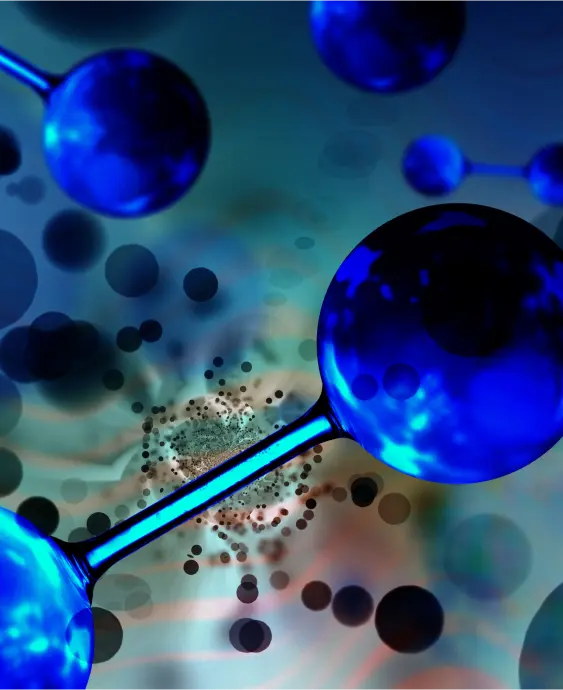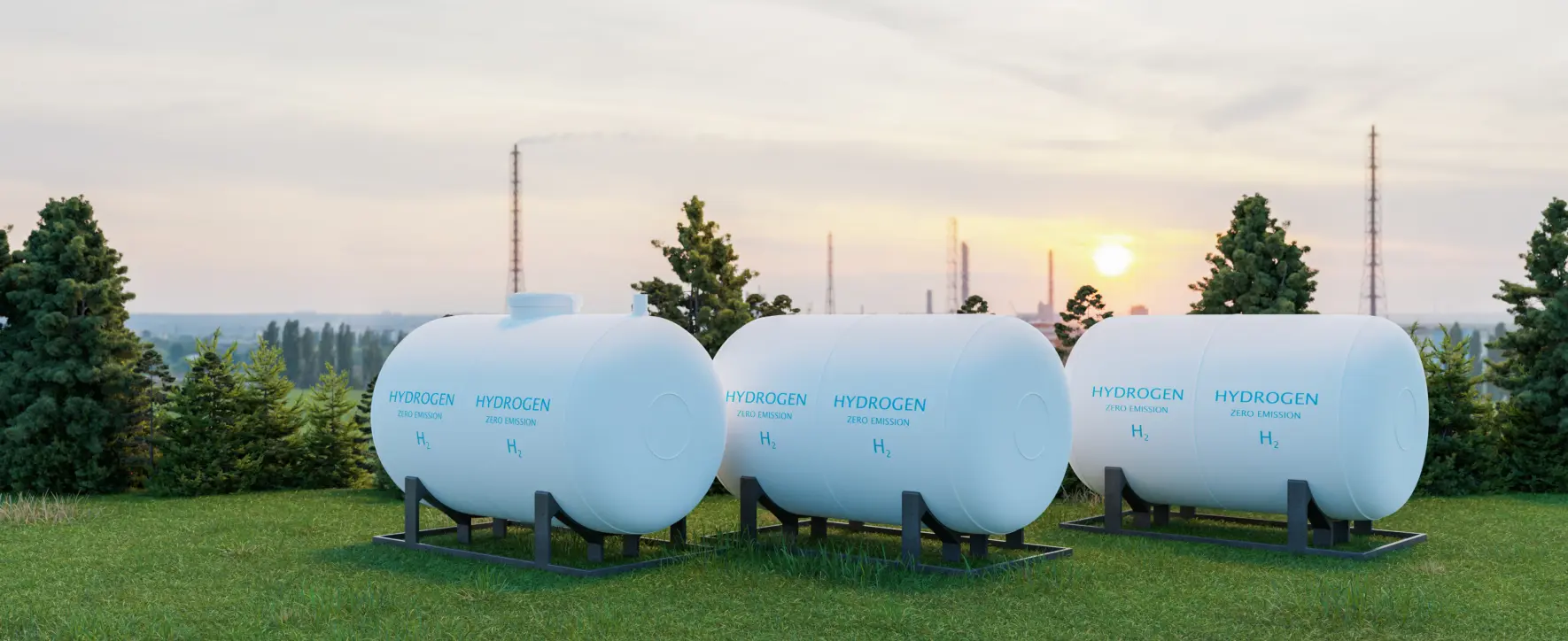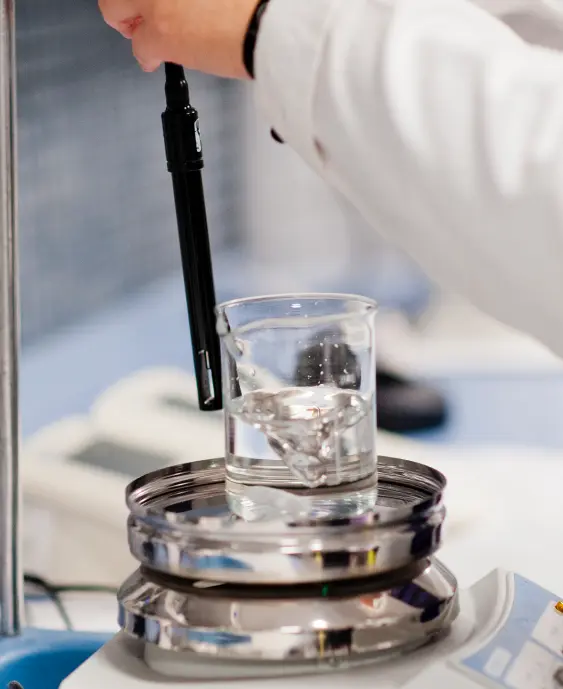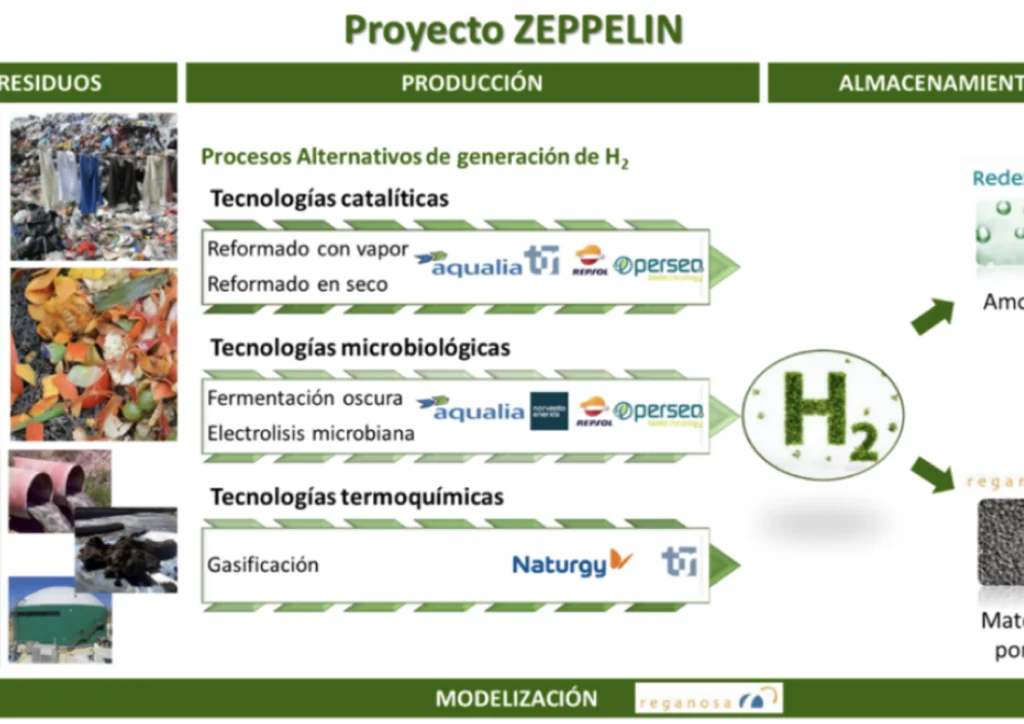
Zeppelin Project
Reganosa will test new green hydrogen (H2) production and storage technologies in Spain. Together with the Centro de Investigación y Tecnología Matemática de Galicia (CITMAga) and within a consortium of large companies in the sector, the Galician energy multinational will develop a digital tool to support the manufacture of H2 through the recovery of waste.
The general objective of the Zeppelin project is to research a flexible set of technologies for the production and storage of green hydrogen based on the use of waste and by-products, seeking to significantly improve the costs and efficiency of the production of this energy vector. In this way, the project addresses the different technological challenges linked to biogas and bioethanol reforming, dark fermentation, microbial electrolysis, gasification and H2 storage, establishing new models for obtaining green H2 complementary to electrolysis with renewable energies, integrated into a decarbonised energy model under the principles of the circular economy and digitalisation, in a scenario of water stress aggravated by phenomena derived from climate change.
This initiative is driven by a consortium of eight companies led by Aqualia, which together with Norvento Enerxía, Naturgy, Perseo Biotechnology, Repsol, Redexis, Reganosa and Técnicas Reunidas, are embarking on a project that will last 38 months (from 1 November 2021 to 31 December 2024).
In addition, 9 research organisations are also collaborating (CETIM, CIEMAT, EnergyLab, CIDAUT, Institute of Chemical Technology (ITQ-UPV and ITQ-CSIC), FUNGE-UVa, IMDEA-ENERGIA and CITMAga), which have a complementary technological capacity to carry out all the research activities proposed throughout the project.






